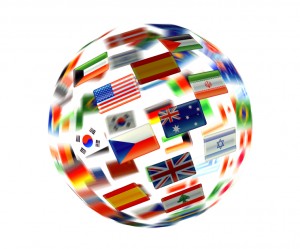 UN Report Denounces Increased Torture in Afghanistan
UN Report Denounces Increased Torture in Afghanistan
A United Nations (U.N) report revealed the increase of torture in Afghan prisons over the last year and the creation of secret facilities for the Intelligence Service of the Central Asian nation.
The document released digitally in Kabul, talks about the abuse of prisoners by the local police, but the government denied the allegations and promised an investigation to clarify these episodes.
The U.N. based its report on a survey of 635 prisoners, which detailed that the nature of abuse differs from prison to prison, but confirmed the practice of torture.
In support of its view, the international body gives examples of inmates with obvious signs of abuse.
The report suggests that little has been done since 2011, when in another similar document it said that many Afghan inmates have had their genitals twisted, among other abusive methods.
A presidential spokesman, Aimal Faizi said that torture or ill-treatment of prisoners is not part of Afghan national policy. He added that the government has begun to investigate and take action regarding abuse cases certified by the U.N. report.
Violence Affects Women of Latin America and the Caribbean
A study on gender violence conducted in 12 countries in Latin America and the Caribbean shows that between 17 and 53 percent of those questioned reported being physically or sexually abused by their partners.
“Violence against women in Latin America and the Caribbean: A comparative analysis of population-based data from 12 countries,” is the title of the document that reflects as abuse involves physical injuries, cuts, bruises and broken bones, going through miscarriages and burns.
However, despite this, between 28 and 64 percent of those affected did not seek help or talk to anyone about this experience.
The research also reflects that 10 to 27 percent of women in these countries reported having experienced sexual violence at some point in their lives, committed by a partner or other person, but usually by a man they already knew.
Besides being a violation of human rights, violence against women has serious health consequences for them and their children, and creates a large impact on workers and health systems in the region, “said Dr. Mirta Roses , director of PAHO/WHO.
Meanwhile, Alessandra Guedes, coauthor of the report and PAHO/WHO regional adviser for Domestic Violence, said that this work can serve to motivate decision-makers to invest more resources in implementing evidence-based prevention and response strategies.
The report incorporates data from interviews with more than 180,000 women in Bolivia, Colombia, Dominican Republic, Ecuador, El Salvador, Guatemala, Haiti, Honduras, Jamaica, Nicaragua, Paraguay and Peru.
Arab Leaders Start Economic Summit in Saudi Arabia
Reading verses from the Quran, the sacred Muslim text, was the prelude to the 3rd Arab Summit of Economic and Social Development, opened by Crown Prince Salman bin Abdelaziz Al Saud.
Speeding up the preparations for the customs unification, planned for 2015, is among the main objectives of the summit, according to information distributed by media sources at the conference.
Today’s meeting behind closed doors was preceded by a foreign ministry meeting, as a preparation for the summit of heads of state.
The first of the two previous forums was held in Kuwait in 2009 and the second was held in the Egyptian city of Sharm el Sheik two years later.
The Arab foreign ministers held a first session on Saturday in which Egyptian Foreign Minister Mohamed Kamel Amr handed over the presidency of the summit to his Saudi peer, Prince Saud Al-Faisal as representative of King Abdullah bin Abdulaziz Al Saud.
One concern of the Arab heads of state is the deplorable economic state of several countries in the region, in which some have been brought to a halt by political conflicts.
Support for development of small and medium-sized businesses, protection to Arab investors and development of renewable energies also appear among the points to be discussed in the conference, which will last two days, according to its organizers.
Via PL

